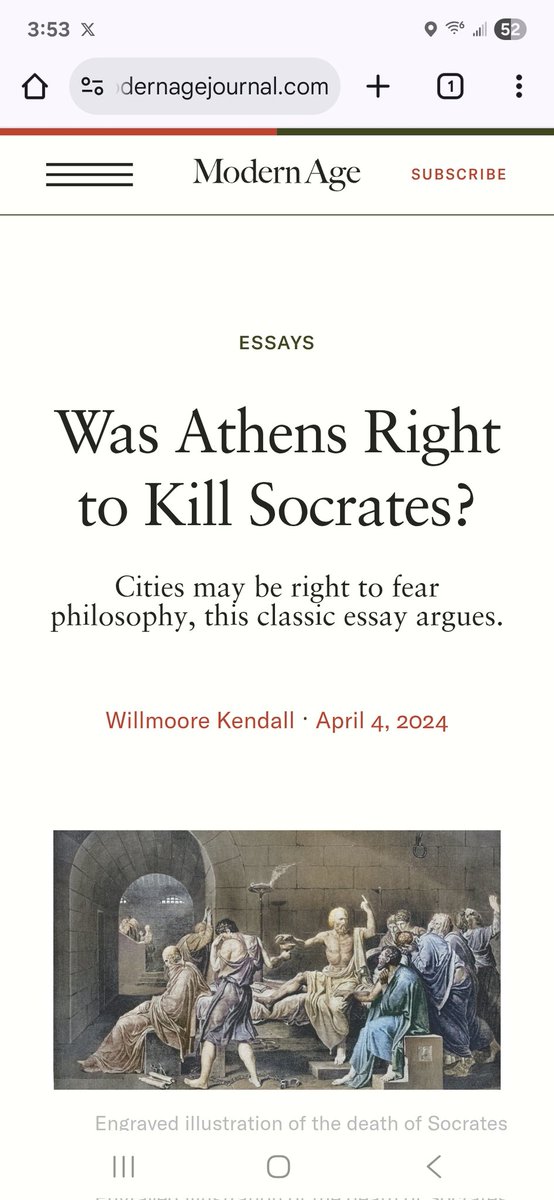The right has always had a pronounced anti-intellectual streak
In The Meaning of Conservatism Roger Scruton applauded "unthinking people" who accept the burdens life imposes on them without complaint.
They want a society of subjects who uncritically defer to their "superiors."
In The Meaning of Conservatism Roger Scruton applauded "unthinking people" who accept the burdens life imposes on them without complaint.
They want a society of subjects who uncritically defer to their "superiors."
https://twitter.com/mjfree/status/1946376932423053579
There are innumerable examples of this going way back. Joseph De Maistre called reason a fundamentally destructive force and recommended people be indoctrinated into dogmas and come into the world with all their opinions ready made.
Nietzsche said people should be educated...
Nietzsche said people should be educated...
...to be slaves and servants, not taught how to participate in politics.
Willmoore Kendall mused Athens was right to execute Socrates since his nagging questions were fostering revolutionary sentiments. The parallels to condemning critical theory were clear.
Willmoore Kendall mused Athens was right to execute Socrates since his nagging questions were fostering revolutionary sentiments. The parallels to condemning critical theory were clear.

Even Edmund Burke mused that is was a real shame when people enquired into the historical origins of political authority and asked themselves theoretical questions about its legitimacy. He suggested "pleasing illusions" were preferable to the nakedness of reality...
...since it helped everyone accept the elevation of one ordinary man over another ordinary man.
The list goes on and on and on. If you want the short summary of the right Stephen put it well: obeying a real superior is a primary virtue.
The list goes on and on and on. If you want the short summary of the right Stephen put it well: obeying a real superior is a primary virtue.
• • •
Missing some Tweet in this thread? You can try to
force a refresh





